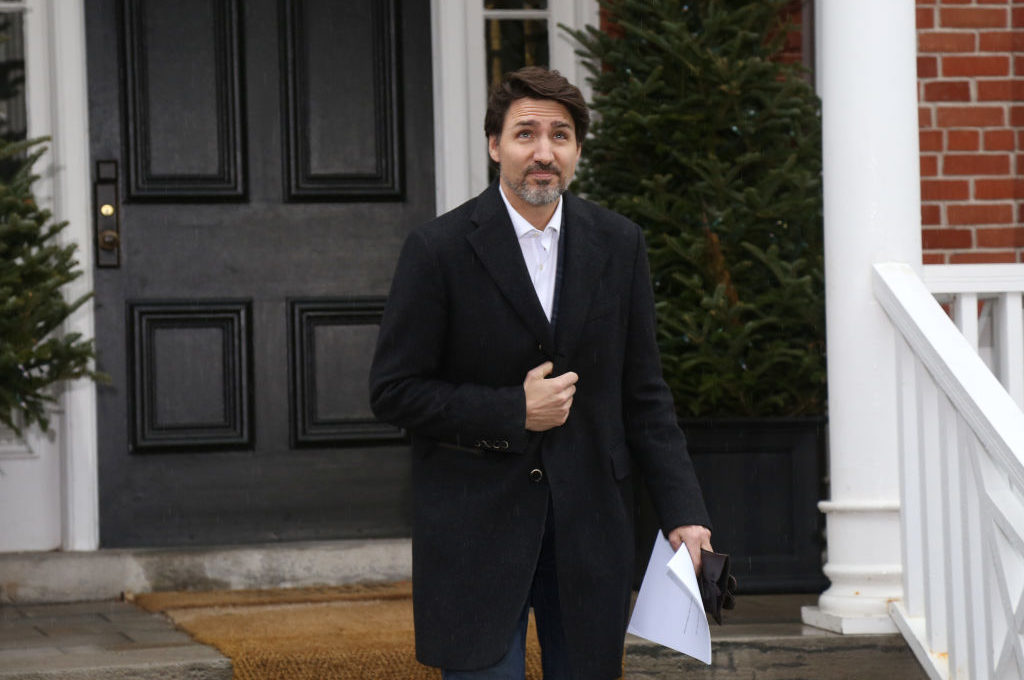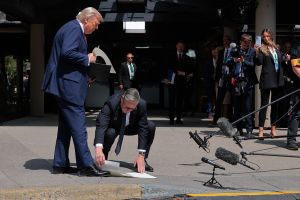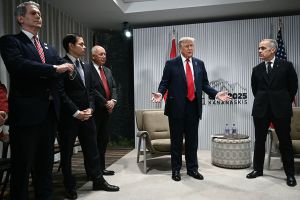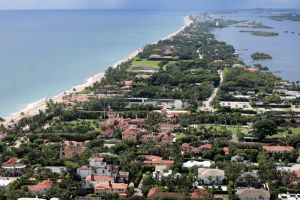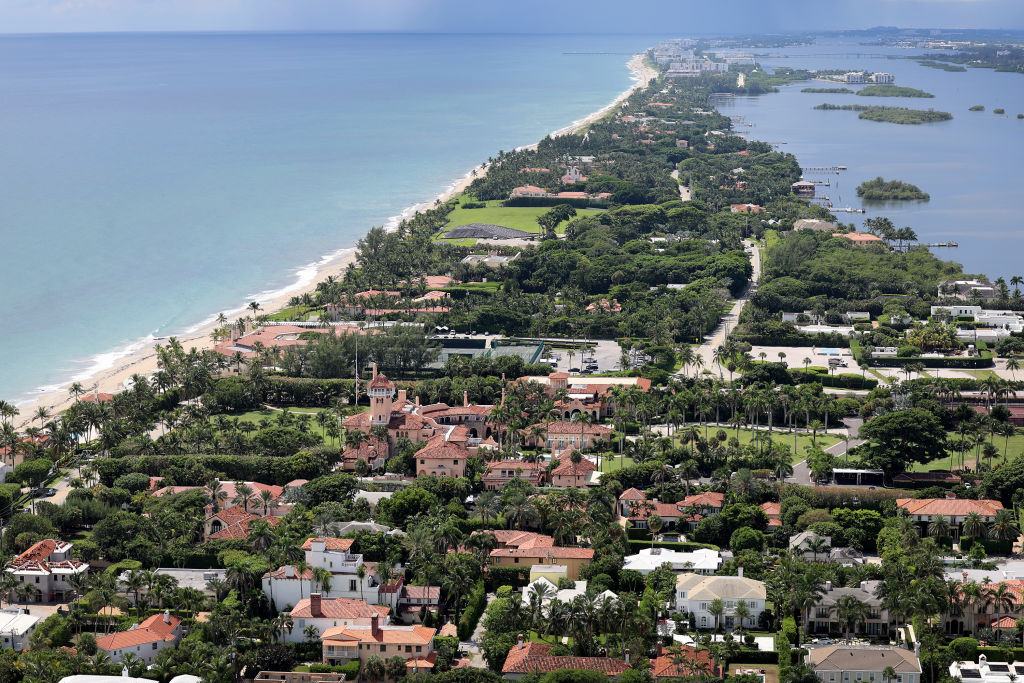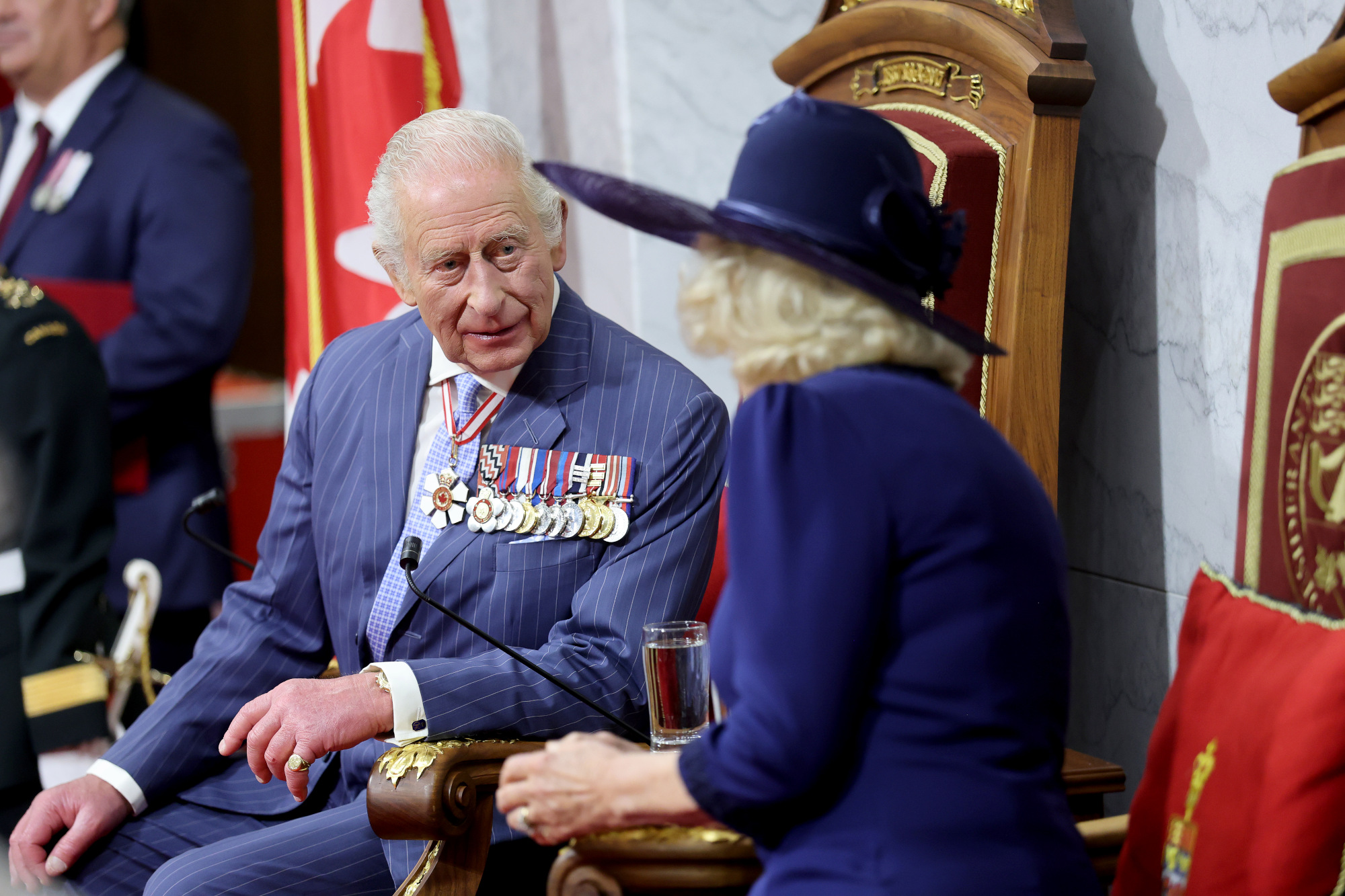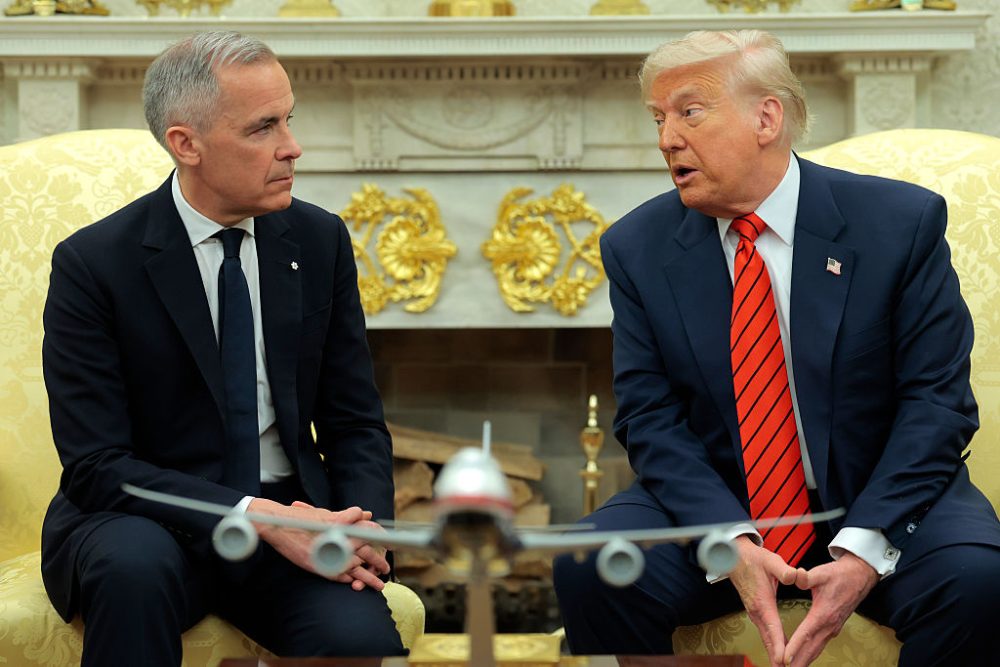Who is winning the COVID war? It’s not a contest, Meghan. Fair. But if ‘winning’ means I can go get drunk with my friends, sit close and talk about all our other friends, kill me for feeling a bit competitive. And from where I’m sitting (on my couch), I can see the dim light of a refurnished dive bar at the end of the tunnel.
It honestly hasn’t been so bad here in Canada. When people insist that we are living in some kind of authoritarian police state, thanks to social distancing measures, I roll my eyes. In Vancouver, where I live, we have not shut down our parks; people are still out and about, politely keeping their distance; and, to date, no one has been arrested for playing catch with their child. On Friday evenings, couples and small groups gather on blankets, appropriately spaced out, to drink and chat at the park. I walk my dog daily, and see couples exercising, fathers and daughters throwing the football around, and shameless attention seekers doing yoga in the park, as though anyone is impressed by a downward facing dog. As I walk through my hood, my neighbors and I take great care to cross the sidewalk to avoid imposing potential droplets on one another. I have gone for social distanced walks with friends, so that I don’t die of loneliness, though I feel pained I can’t hug them.
It is hard, but it is also OK, here at least. There are many things we can’t do, many are suffering financially, but we are not prisoners. We probably have another month or so to go, before things loosen up. I think we can make it. Canada did some things right, which means we may be able to come out of this sooner, rather than later.
Things did not begin perfectly. In late January, Dr Theresa Tam, Canada’s chief public health officer, health minister Patty Hajdu, and Prime Minister Justin Trudeau insisted the ‘risk to Canadians was low’, based on information and recommendations from the World Health Organization. When pressed on exactly what ‘low’ meant, Tam responded:
‘Yes, there’s human-to-human transmission, but those are generally for close contacts. With regard to the severity of illness, there are some severe cases, but the deaths have occurred in older people with underlying medical conditions. With all of that pulled together, for the general public who have not been to China, the risk is low in Canada.’
It is now clear that this was bad information, though it’s difficult to place blame on Canadian authorities and politicians, who were most likely simply parroting the WHO, generally assumed to be a trustworthy source. Instead, it seems the WHO was diligently sharing information received from Chinese authorities, since revealed to have concealed the truth about the situation in Wuhan. That allowed the virus to spread throughout the world, causing the pandemic we are now faced with.
On January 30, the WHO declared coronavirus to be an international public health emergency, yet, over the next month, many Canadians continued to insist this was ‘just another flu’, and that, in any case, ‘the regular influenza is more likely to kill you than coronavirus’.
On February 5, Tam continued to insist the risk for Canadians was low, and played down the possibility of spread via pre- or asymptomatic carriers. Four days later, with seven cases of novel coronavirus confirmed in Canada, Trudeau said, ‘We are confident that in Canada the risk remains low.’ On February 26, Hadju encouraged Canadians to stockpile food and supplies in case they or someone in their family gets sick, and those traveling for spring break were told only to ‘think carefully about where they and their families are planning to go’. At this point, travelers were still coming to Canada from known infected areas like South Korea, Japan, Italy, Iran and mainland China.
The first confirmed ‘community case’ of coronavirus in Canada showed up early last month. On March 9, the first coronavirus death in British Columbia was confirmed. The WHO didn’t label COVID-19 a pandemic until March 11, at which point it was really too late to do much of anything at all. We were all just going to have to see this thing through. Social distancing was recommended, large events canceled, and Alberta and British Columbia started to go hard on testing. There were over 100 confirmed cases in Canada, at this point. On March 12, Trudeau’s wife, Sophie, was diagnosed with COVID-19 and the couple entered self-isolation.
On March 17, provinces declared a state of emergency, and ordered the closure of indoor recreation facilities, libraries, schools, daycares, theaters, concert venues, bars, and restaurants, except those that offer takeout or delivery. On March 23, non-essential workplaces were ordered to close.
***
Get three months’ free access to The Spectator USA website —
then just $3.99/month. Subscribe here
***
While many failed to take social distancing orders seriously at first, we did catch on, after being made to understand the severity of the situation: this wasn’t just about protecting yourself, it was about protecting others, and not overwhelming the healthcare system.
When, at the end of March, Canadian cities approved fines for businesses and individuals who defied social distancing rules, a huge majority of the population declared their support. Despite hyperbolic claims we were losing our civil liberties and were being suckered into accepting a New World Order, few fines have been issued. Provinces have treated these measures as a last resort, hoping Canadians would voluntarily comply with recommendations, which, for the most part, we have.
Canada is, like the stereotype, a country of polite but cold people. We are neither disorderly nor outgoing — not inclined to get up and dance at a concert, never mind kick up a fuss over being told to stay home, and six feet away from others. It’s not like we want to befriend our neighbors, anyway.
In Vancouver, we have the exceedingly dull reputation of being health nuts, so the biggest problem has been with compulsive exercisers: namely, the runners who insist on storming the busy seawall, grunting and sweating as local dog walkers politely dive out of the way. As a Canadian who is perhaps better suited for a sit-in-the-pub-oriented city over a wake-up-early-on-Sunday-morning-to-stairmaster-my-way-up-a-mountain city, I’m still grateful for the reputation we live up to.
While the rest of us were at the park, about a dozen protesters gathered on Cambie — the street equivalent of a matcha latte — claiming coronavirus was ‘fake news‘ and that the government’s recommendations constituted ‘tyranny’. We’ve seen similar complaints in a few other countries: in the UK, 5G masts have been burned down, after David Icke announced on YouTube that, ‘if 5G continues and reaches where they want to take it, human life as we know it is over…so people have to make a decision.’
In the US, freedom reigns, and people are holding ‘coronavirus parties‘ in order to demonstrate their invincibility to COVID-19, by contracting the virus. On Wednesday, thousands of cars and trucks are descended on Michigan’s state capital, Lansing, for a ‘drive by demonstration, protesting stay-at-home orders’. ‘Operation Gridlock’ was just one of a number of demonstrations around the country, demanding states be ‘reopened’.
While the impact on the economy, on workers, and business owners is substantial, and not to be downplayed, the reality is that, thanks to Canada’s diligence (albeit late to the game), we are doing OK, relatively speaking.
Canadians who are out of work and without pay have easy and quick access to $2,000 a month, few questions asked. Small and medium-sized businesses have been offered a 75 percent wage subsidy so they can continue to pay their employees, while they are off work. Canada’s big banks agreed to defer mortgage payments for up to six months for customers unable to make payments due to coronavirus-related financial hardship. In British Columbia, the government ordered a rent freeze, a moratorium on evictions, and is offering $500 a month to those struggling to pay the rent during this time. Similar restrictions on landlords have been implemented in other provinces across Canada.
We are in a lucky position. Canada is a big, underpopulated country, meaning we have the luxury of being spread out, and our cities are less densely populated than many other countries, like the US, India, Italy, China and the UK. Vancouver is Canada’s most densely populated city, but contains a little under 700,000 people (excluding the suburbs, as a true Vancouverite does), in a country of 37 million. While there are 11 people for every square mile in Canada, Italy packs in 532 per square mile, and the US 94. China’s population density is 397 per square mile. People simply have more room to move here than they do in so many places across the US, which is likely why I can go out for a pleasant walk, at a safe distance from others, without feeling like I’m doing something illegal.
As of Monday, Canada reported 35,056 confirmed cases of COVID-19, including 1,587 deaths, but a large portion of those numbers are concentrated in Quebec, whose numbers climbed steadily all week, reaching 18,537 confirmed cases and 877 deaths on Monday. British Columbia has seen a measly 1,647 confirmed cases as of April 20, and the death toll stalled at 81 deaths. (Compare this to New York City, with 134,436 confirmed cases and 10,022 deaths in a city of eight million people.)
The question as to why British Columbia is doing so much better than other provinces is worth exploring. Part of it is due to luck, as the province shut down pre-spring break, meaning people’s travel plans were canceled, while Quebec’s March break had already come and gone. Our provincial health officer Dr Bonnie Henry emerged as our beloved leader, instructing people to cancel their travel plans on March 12, while Ontario Premier Doug Ford told families to ‘go away‘ and enjoy their time off. (Americans who insisted on keeping their spring break travel plans certainly played a role in spreading infections as well.) Clear communication in British Columbia, in combination with vigorous testing and efforts to limit outbreaks in long term care facilities, diligence on social distancing, thanks to a docile population, and reasonable financial support for those in need, all did their part. Indeed, we seem to have flattened the curve, within just a month.
There is another factor no one is talking about: British Columbia has the healthiest population in Canada. We are more physically active, have the lowest obesity rate in the country, and less smokers. In 2015, the province ranked third healthiest worldwide, and Vancouver routinely ranks high among the healthiest cities in the world, taking first place in Canada every year. I am not in a position to say for certain that this has factored into our population’s ability to better fight COVID, but it can’t hurt. Exercise and our love of going (and easy access to) outdoors, all play an important role in our overall health, and the strength of our immune systems, putting our city and province at a major advantage in that regard.
We are not out of the woods. But as Vancouver and the rest of BC look towards ease back into some semblance of ‘normal’ life sooner, rather than later, we can look to a number of elements, including the leadership of Dr Henry, who has been clear and diligent in reminding us not to wane on social distancing guidelines, knowing we may be getting antsy and overconfident. I may have to humbly accept that while our very polite, very dull, and health-obsessed population may provide me with a joyful source of ire from the comfort of my bar stool, it also offers a useful cadre of soldiers in the fight against COVID. Paddleboard yoga classes may be back on after all.
Meghan Murphy is a writer in Vancouver. Her website is Feminist Current.



